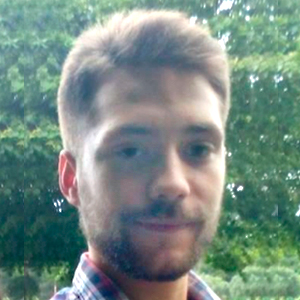
Álvaro Jesús Arana
Principia Programme Researcher/ PhD Student
varoarana@mac.comResearch area: Zebrafish models for rare diseases
Álvaro Jesús Arana Díaz (Ourense 1993) complited his final degree project at the Health Research Institute of Santiago de Compostela (IDIS) concerning the role of Visfatin in rheumatic diseases, under the direction of Ph.D Rodolfo Gómez, in 2016. Same year, he obtained his degree in Biology at Universidad de Santiago de Compostela (USC).
In 2016, he completed a Master’s Degree in Biomedical Research at USC and worked on his master’s project at IDIS (https://www.idisantiago.es) and the Zebrabiores group (http://www.zebrabiores.com) integrated into the Acuigen group (http://acuigen.es/gl) of the University of Santiago de Compostela (USC), which focuses on the generation of a mutant model for the chd7 gene causing CHARGE syndrome, in zebrafish (Danio rerio), under the supervision of Ph.D Laura Sánchez and Ph.D Manuel Collado.
After training in animal experimentation with fish, amphibia and rodents, in 2017, he completed the doctoral thesis in the study of the mutant line for chd7 gene and the link between CHARGE syndrome and embryonic senescence, in 2023, with title “GENERACIÓN DE UN MODELO DE PEZ CEBRA (D. rerio) DEL SÍNDROME DE CHARGE: BASE Álvaro Jesús Arana Díaz GENÉTICA Y MOLECULAR”, under the supervision of Ph.D Laura Sánchez and Ph.D Manuel Collado, obtaining the maximum qualification 'Cum Laude'.
During his Ph.D, he obtain a fellowship from the Principia Programme in 2016, being which was replaced for a three years fellowship from Xunta de Galicia to finish his Ph.D. Throughout his doctoral studies, he conducted Genetics classes at the University of Santiago de Compostela for the entire duration of the Xunta de Galicia grant, and gave talks and practical training sessions for students in the high schools CFIP Politécnico de Lugo, as well as at curses like the CRISPR/Cas Genome Editing Symposium: Origins and Applications (2023), which provided an opportunity for him to enhance his communication skills.
He carried out several stays, including the longest of 3 months abroad, at the i3S institute in O Porto, where he learned in situ hybridization, immunohistochemistry and ATACseq techniques. She also made several brief stays within Spain, in Seville where she learned to work with other species such as the killifish (Nothobranchius furceri) and Madrid, where she learned to work with chicken embryos.
Currently, he specializes in CRISPR gene editing, having generated over 5 lines in zebrafish for various genes. He is actively serving as a postdoctoral researcher under the supervision of Ph.D.s Paulino Martínez, Laura Sánchez, and Diego Robledo. In his current role, he is involved in a gene editing project focused on cell lines of sea bass (Dicentrarchus labrax) and sea bream (Sparus aurata). This project is part of the Next Generation European projects within the Galician Marine Sciences Program.
He is actively engaged in collaborative projects involving zebrafish and killifish with various researchers. For instance, he collaborates with Migue Fernandez from the Autonomous University of Madrid on a study related to mitochondrial diseases. Additionally, he collaborates with Antón Barreiro from the USC on a study focusing on neuronal aging.